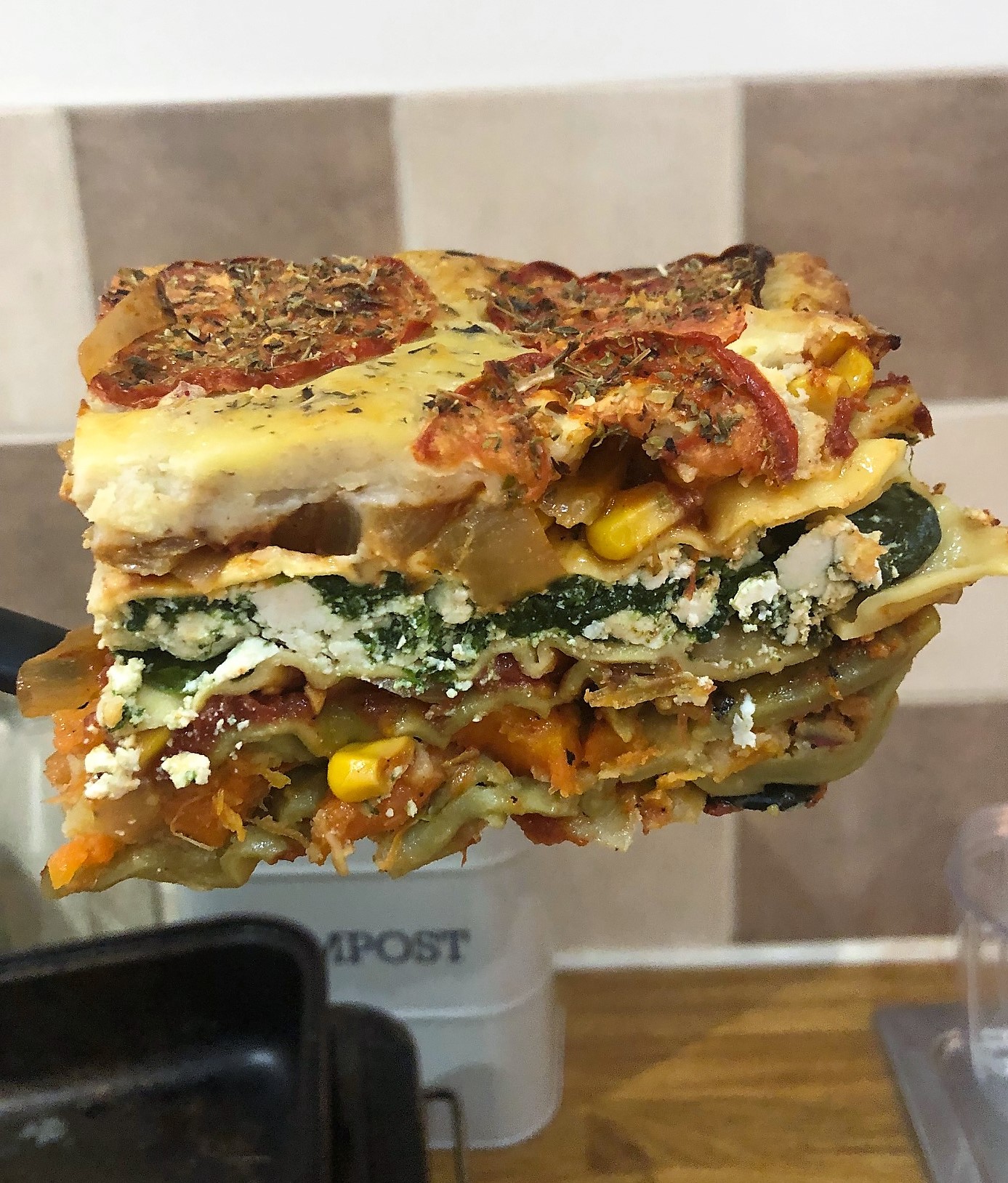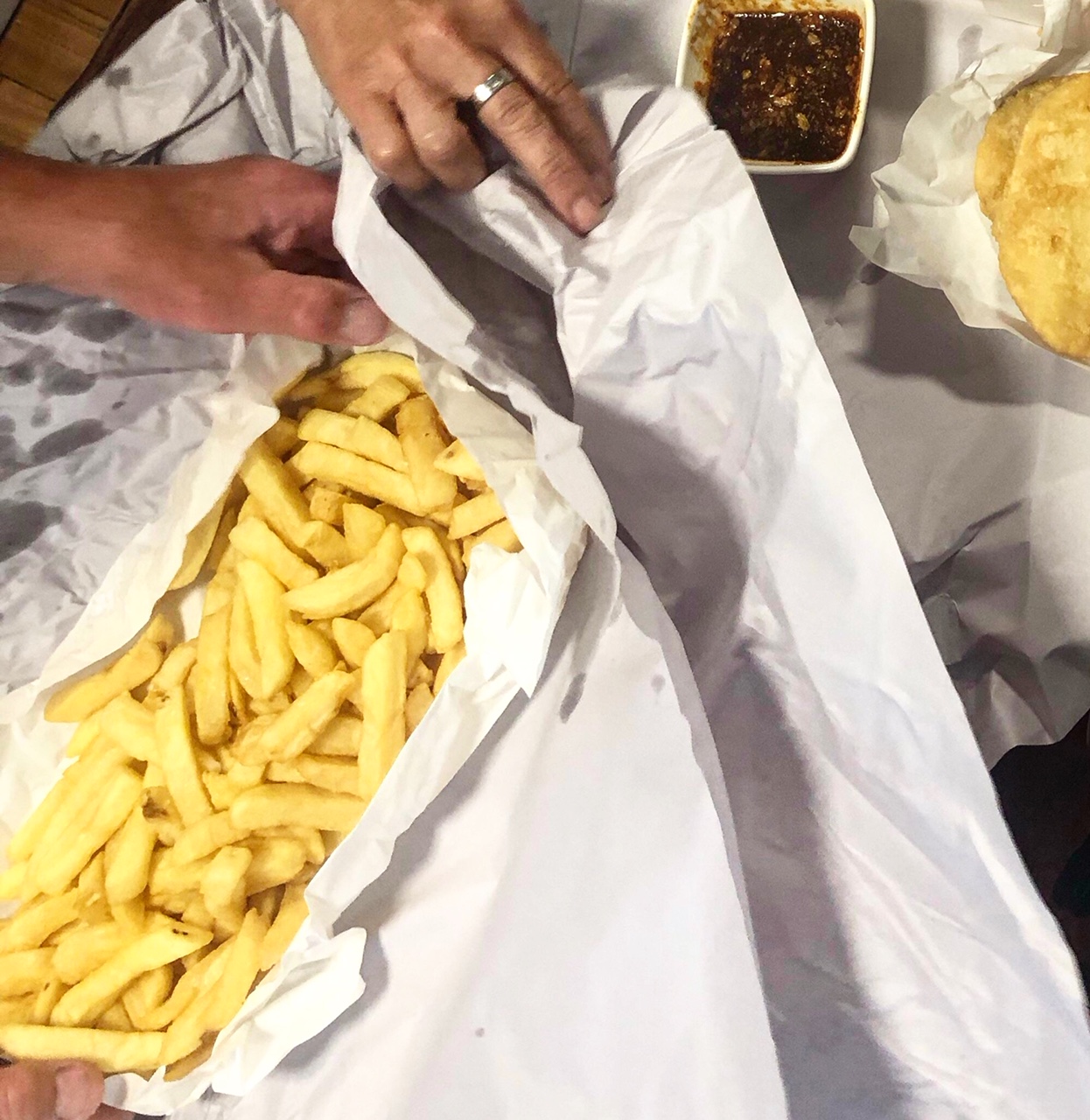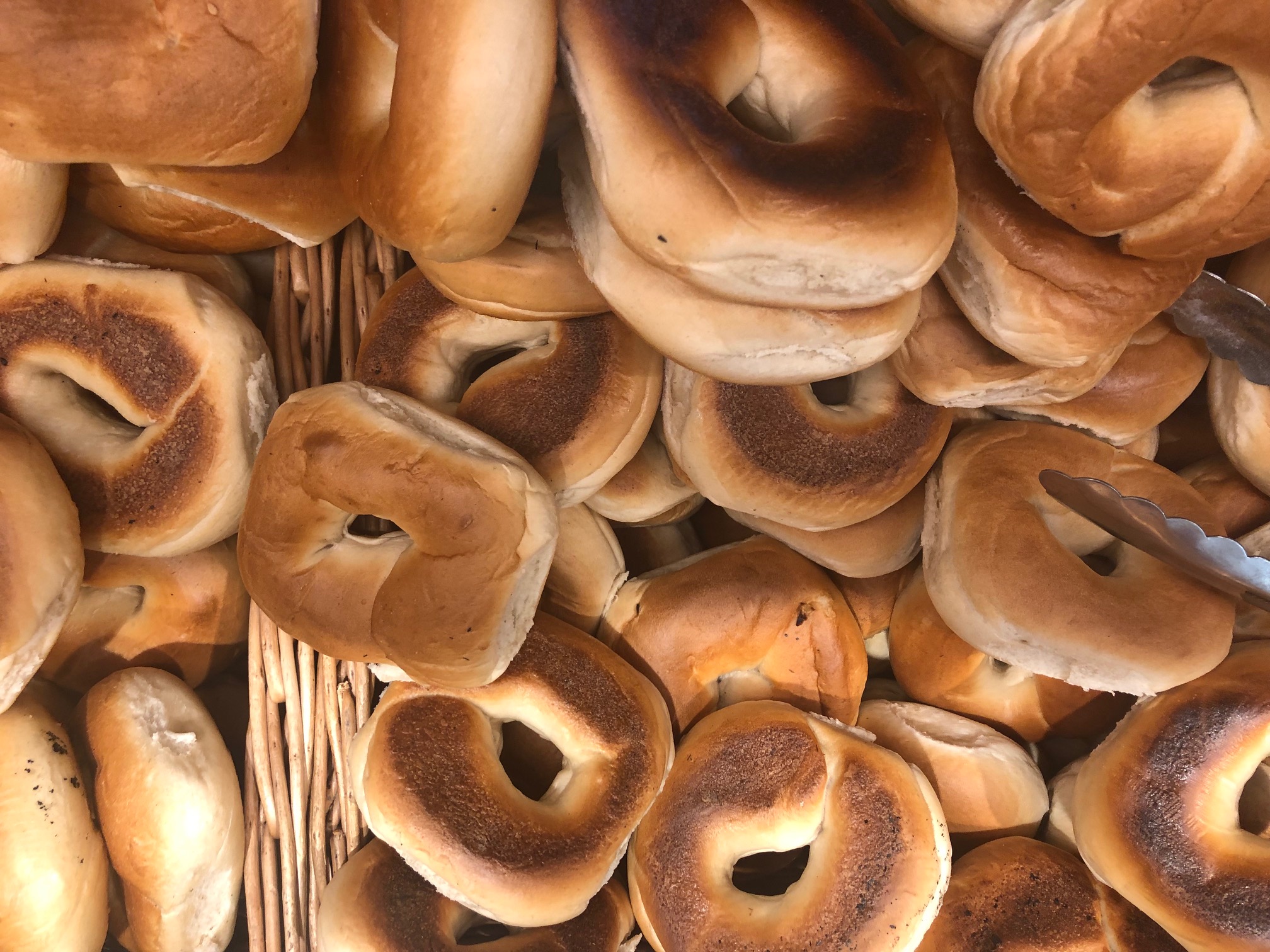
Makes 4 large portions
This one has been around for years but I have just never actually written it down. So finally, it’s here, it’s chunky and it’s packed with colour and goodness. I mostly use standard lasagne sheets, although sometimes opt for the green spinach ones just to mix it up a little. For the mash layer, use any root veg you fancy too! It’s also better if you make it the day before, and even nicer cold.
INGREDIENTS
Lasagne sheets
150g spinach
200g ricotta cheese
1 medium carrot
1 small sweet potato
1 tin of chopped tomatoes
1 200g tin of sweetcorn
2 teaspoons paprika
2 medium onions, roughly chopped
2 teaspoons minced garlic
2 tablespoons veggie Worcestershire sauce (Biona do a good one, you can use Lea & Perrins if you are not vegetarian it just contains fish)
Rapeseed oil
Olive oil
2 teaspoons butter
50g/ 1/3 cup plain flour
150ml milk
100g cheddar cheese (grated)
1 medium tomato
Dried oregano
L22mm x W17mm x D6mm sized dish
METHOD
Preheat your oven to 180C
Layer 1
Roughly chop the carrot and sweet potato, leaving the skins on for extra fibre.
Boil both together until soft (around 15-20mins). Drain.
Season with salt and pepper and 2 tsp of olive oil, then roughly mash.
Layer 2
Add 1 tbsp of rapeseed oil to a large frying pan with the heat on medium.
Add the onion and garlic and fry for 5 minutes, stirring occasionally.
Add the paprika and continue to cook for 10 mins, turn the heat down if it starts to stick.
Add the sweetcorn, tinned tomatoes and Worcestershire sauce and mix together. Season with salt and pepper.
Add 100ml of water and simmer for 15 minutes
Layer 3
Place the spinach in a saucepan on a low heat and add 1 tbsp of water.
Once wilted, drain any excess liquid and add the ricotta. Mix together. Season with pepper.
Cheese sauce
Melt the butter in a small saucepan over a low heat.
Once melted add the flour and mix until it forms a paste. It may go into lumps which is fine, these will dissolve when the milk is added.
Whisk in the milk and keep whisking until all the lumps have dissolved and it starts to thicken. You may need to add a little bit more milk if its gets very thick.
Add half the grated cheese and stir until melted.
Assembly
Place a tiny amount of the tomato mix on the very bottom of the dish, this is so the bottom layer of the lasagne cooks. It shouldn’t even cover the bottom of the dish.
Then place a single layer of lasagne sheets on the bottom, break them with your hand if you need to, it’s always a bit like a jigsaw!
Place a layer of the carrot and sweet potato mix on top, use all the mixture. Top with cheese sauce.
Cover with lasagne sheets and press down firmly.
Use half the tomato mix and spread evenly on top. Top with cheese sauce.
Cover with lasagne sheets and press down firmly.
Place a layer of the spinach and ricotta mix on top and press down, use all the mixture.
Cover with lasagne sheets and press down firmly.
Use the remaining half of the tomato mix and spread evenly on top.
Cover with the cheese sauce and grated cheese. Top with sliced tomatoes and sprinkle with dried oregano.
Baked for 30 mins or until golden.
Serve with a delicious green salad.










Recent Comments